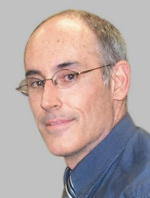Since completing training at the Royal Free Hospital and surviving the pre registration year I first went to Aberdeen (very cold) to study for the MRCP, after achieving the exam in 1986 I moved to Glasgow (very wet) to train in Clinical Oncology I qualified in 1990 with the FRCR picking up an MSc in Medical and Clinical Oncology on the way.
I spent my Senior Registrar year in Christchurch Hospital (warm and dry) and was appointed Consultant in Oncology at Dunedin Hospital (warm and wet) in 1992. I was involved in developing and directing the National Stereotactic Radiosurgery Service. In 1996 I was elected to the Fellowship of the Royal college of Physicians of Glasgow .
In 2001 I was recruited to Ontario Canada as Medical Director for the new cancer centre In Grand River (bloody cold) which opened July 2003 a $56 million technological cathedral. to modern medicine and the use of gadgets in medicine. In 2002 I became fellow of the Canadian College .
I was re recruited to Dunedin in September 2003 to work in the Oncology Service, in December 2003 I was appointed Director of Medical Services for Healthcare Otago.
I have recently been elected as a fellow of the Royal College of Physicians of London (2008) and lately to the Royal Australian and New Zealand College of Radiologists. I also have been appointed to the position of Clinical Director of the Southern Cancer Network for the last 5 years.
My principal interests include Lung, Bowel and Prostate Cancer
I married Fiona, a nurse I met in Hastings during my senior surgical placement in 1985. We have three children (Sorcha 21, Annika 18, and Rory 15). All of whom have followed me around the world and in the process kept me sane. They also suffer my absences from home and in return I suffer the extortionate phone bills.
Somewhere along the line I seem to have lost much of my hair!
Currently I spend my spare time trying to keep up with the children and rebuilding their computers. I pretend to garden occasionally.
I enjoy traveling and have been fortunate that my work has carried me to most continents.

| What's New in Cancer Treatment? | |||
| Friday, 17 August 2012 | Start 2:50pm | Duration: 25mins | Plenary Room |
Clinical issues
New hormonal therapies in Prostate cancer
Non-surgical treatments in lung cancer
New drugs and indications in breast cancer
New strategies in colorectal cancer
Non-clinical
Faster waiting times for cancer …. What does this mean?
MDM: towards more open access for clinicians
Cancer Care Coordination will it make a difference?
| The Increasing Burden of Cancer Survivors | |||
| Saturday, 18 August 2012 | Start 9:20am | Duration: 25mins | Plenary Room |
This talk will seek to describe the issue and look forward to how the sector is planning on meeting the challenge.
| Prostate Cancer Follow up & Relapse Treatment Options - Concurrent Workshop Repeated | |||
| Saturday, 18 August 2012 | Start 11:00am | Duration: 55mins | Monet |
| Start 12:05pm | Duration: 55mins | Monet | |
Survival for the majority of patients is measured in years and sometimes in decades even for those who have incurable disease.
New treatments which will prolong life are now being made available.
The standard paradigm of tertiary or secondary cancer care for this important treatment group is unsustainable.
This workshop will discuss a framework for prostate cancer follow up and discuss potential strategies to deal with relapse which could be applied in a community setting.
| Palliative Care - Nurses Programme | |||
| Saturday, 18 August 2012 | Start 3:00pm | Duration: 30mins | Port Otago Lounge |
The aim of this workshop is to discuss the rationale and use of radiotherapy for the palliation of symptoms due to malignant disease.
Discussion topics will include:
- How and why radiation works
- Which are the appropriate patients to consider
- What are the indications for treatment?
- Special consideration will be given to the use of radiation in the palliation of bone pain, brain metastases and spinal cord compression
| Stereotactic Radiotherapy for Lung Cancer Concurrent Workshop | |||
| Saturday, 18 August 2012 | Start 4:30pm | Duration: 60mins | Lounge 2 |
Stereotactic radiotherapy is on the must do list of every major cancer centre in the world and has recently been endorsed by NICE (UK).
It offers a non-surgical approach for those who are unsuitable or disinclined to a surgical approach.
Stereotactic radiation for lung cancer is a non invasive intervention with few side effects delivered as an outpatient which offer patients a local tumour control similar to that of surgical resection.
This talk will discuss the technique, patient profiles and outcomes as well as the pitfalls of follow up in this “new group” of lung cancer survivors.